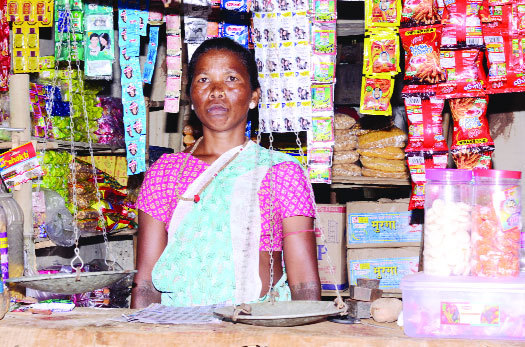Various schemes are empowering families in Jharkhand and gradually improving their lives.
The success of a democracy can be mapped by whether those sections of society which are poor and deprived and have suffered from neglect and exploitation for centuries, have been given justice and equal opportunities by the society. After independence, the governments of almost all the states along with the Centre have made efforts in this direction. The Welfare Department of Jharkhand government is giving free assistance to the poor families, so that they can stand on their feet and become self-reliant. Dr. Lewis Marandi, welfare minister, Jharkhand, says, “The government has linked the tribal families to this scheme whose homes do not have any earning member due to which they are facing a troubled life.” The welfare department has identified 2,000 such families where the woman is the head of the family in two districts of Chaibasa and Dumka and have no one to else to support them. In order to raise their living standards and provide them with a respectable life, these families are being given material according to their needs.The Jharkhand government is determined to provide a fresh start to the lives of the poor tribals, through an organisation called Bandhan Kangar.
Santhal (Adivasi tribe) women work hard to raise two square meals for their family. In such a situation, this scheme has started increasing self-reliance now among the poorest of poor families. With the aim of making this scheme a collective success, these women have now formed their own groups and are now self-employed.
Women’s groups are supporting their families by doing small businesses, including goat rearing, piggery, poultry and more. For the smooth running of this scheme, a budget provision of Rs 2.35 crores has been made by the Department of Welfare, Government of Jharkhand. Under this scheme a goal of two years has been set for making such ultra-poor families economically stable.
Women’s groups meet each week, where government assistance is provided according to their needs. On behalf of the organisation, women groups are taught how to save money from their profits as well as the benefits of self-employment. Along with this, those who do good work for the organisation also receive encouragement.
Paku Tudu of Haripur Panchayat of Dumka district is supporting her family by running a grocery store. Dozens of women, including Parvati Mohali of Vijaypura, Putul Mohali, Chandravati Devi of Bedia, Prasima Mandradi of Gidhani Pahadi, Pramila Mandradi of Siddhartha village and Fulunai Hembram of Saruwa said that they earn approximately Rs 4,000 per month through self-employment.
Team leader of the Mosalia Block, Sanjeev Pal said that other women of the village also get motivated when they see the ones who are successful. He said that through this self-employment, many women, including Surajmuni Murmu of Manradihah, Khurja of Murshidabad of Jharkhand, Josha Hansda of Haroraidih, Sarita Tudu of Katahlia, and many women have improved their lives. Women from several villages including Haripur, Saruwa, Bandarjori, Kaharabil, Ranidinda, Gadi, Koraiya, Rampur, Berebank, Ghasipur, Dalahi, Sampadhar, Suggapahadi, Amagachhi, Belialozore of Dumka district took advantage of this scheme and learned how to earn their living through self-employment. The goal of eliminating poverty among extremely marginalised families is being implemented by the government.
The government’s plan is not limited to making women self-reliant but also to sending the children of these poor families to schools. Special attention is also given to the health of these women. Efforts are also being made in the direction of their capacity building with the economic advancement of the women’s group. This scheme is working as a ‘Sanjivani Booti’ (magical herb) for the families of these poor tribal ladies. It is not only that the women are becoming self-reliant, but a positive change can be seen even in the villages.
Women have now stopped borrowing money from the money lenders for their purchases. In the field of sustainable development, this scheme is proving to be a meaningful and historical step.
Writer: Shailendra Sinha
Courtesy: The Pioneer








 OpinionExpress.In
OpinionExpress.In















Comments (0)